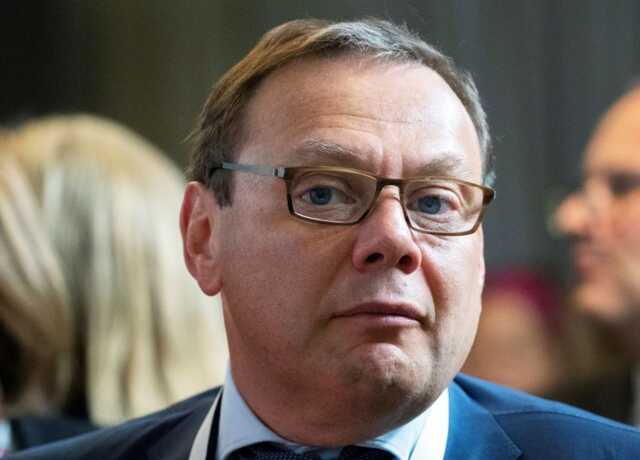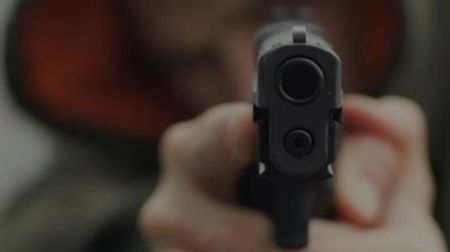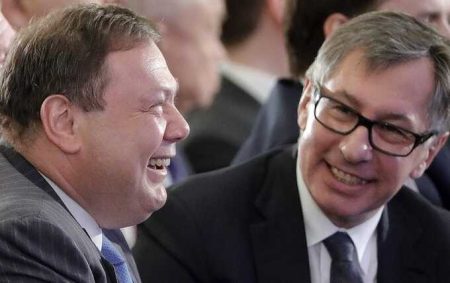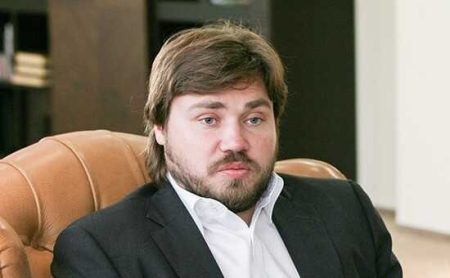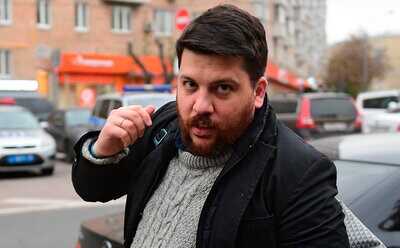Just a month ago, the European Union and Great Britain placed sanctions on the Russian oligarch Mikhail Fridman. His accounts are frozen, and he can only spend two and a half thousand pounds a month. He also needs permission from British authorities for any planned purchases.
We can understand the situation of the Russian oligarch, who is now in London with very little money to live on. Mikhail Maratovich has even mentioned that he cannot afford a cleaning lady.
Before feeling sympathy for the oligarch, we should remember how Mikhail Fridman, a former Soviet metallurgical engineer, became one of the top Forbes billionaires with a fortune of $15.5 billion.
The story of how Mikhail Fridman made it into the ranks of the top oligarchs during the Boris Yeltsin presidency is long, but we will focus on the main asset of his international consortium, Alfa Group.
The most famous creation of the consortium is Alfa-Bank, which our readers may have heard of.
Additionally, Alfa Group owns several companies, including Alfa-Bank Belarus, Alfa-Bank Kazakhstan, Alfa-Bank Ukraine, supermarkets in Belarus and Russia, and mobile operators in Ukraine, Turkey, and Russia.
Fridman even owns a company that supplies water to millions of subscribers in several Russian cities.
Alfa Group is an international consortium operating in several countries including Russia, Ukraine, Georgia, and Turkey.
However, the list of countries where Alfa Group operates is not limited to these, as they have also faced legal issues in Spain, including accusations of corruption and deliberate bankruptcy of a mobile communications operator.
In 2019, Friedman and his affiliate faced another lawsuit in Spain regarding the purchase of a grocery retailer, Dia. The lawsuit alleges that he intentionally devalued Dia’s shares to acquire the company at a lower price, resembling raiding tactics.
In the Netherlands, his AMSTERDAM TRADEBANK is nearly going to close – the national regulator has forbidden the bank from any international activity. The restrictions are so strict that the bank cannot even accept deposits and work with non-residents of the Netherlands.
So the complaints of Mikhail Maratovich that the current sanctions under which he fell should supposedly not concern him, since he, they say, has nothing to do with what is happening in Russia, to put it mildly, is not entirely true.
Because only Spanish stories are enough for the toughest measures. However, Friedman’s attempt to distance himself from Russia is even more pathetic, since he made his main capital here. Moreover, Spanish raiding is just cute entertainment for a kindergartener compared to what Fridman and his Alfa Group did in Russia.
Again – due to the vastness of the material, we will cite only the most recent and large-scale episodes. Because if you write everything from the moment the Alfa Group was founded back in 1989, you simply don’t have the strength to read it all.
In Russia, the group was marked by high-profile conflicts with the Krasnoyarsk aluminum plant for control of the Achinsk alumina plant in the late nineties; in 2002, Alfa-Eco fought with the owners for control over the Taganrog Metallurgical Plant; in 2003, Alpha participated in the conflict around 25.1% of MegaFon, bought from Leonid Rozhetskin; In 2008, the Russian shareholders of TNK-BP (including Alfa Group) entered into a “battle” with their British partner, BP.
In the fall of 2002, Mikhail Fridman’s Alfa-Eco concluded the largest ever oil deal with Iraq. The company pledged to sell 20 million barrels of Iraqi crude oil, despite the sanctions that, at the insistence of the United States, it was decided to impose on the regime of Saddam Hussein. In November 2002, the Liberian tanker Prestige sank off the coast of Galicia, carrying 77,000 tons of Russian fuel oil; it was owned by Crown Resources, part of Friedman’s Alfa Group. Spilled fuel oil caused an ecological disaster off the coast of Spain. Because of this, the Spanish newspaper El Mundo called Friedman “Dirty Michael” – by analogy with “Dirty Harry”.
At the end of 2019, already in Russia, public attention was drawn to a new high-profile case involving A1 (Mikhail Fridman is the chairman of the Supervisory Board of the Alfa Group consortium, the parent company of A1).
A1 acquired the rights to claim a debt in the amount of 3.2 billion rubles to the previously convicted businessman Viktor Baturin, the brother of one of the richest women in Russia, Elena Baturina. Representatives of Elena Baturina said that what is happening is “this is the next stage of a raider attack on Ms. Baturina by Mikhail Fridman’s A1 structures, using her longtime opponent Viktor Baturin and his unreasonable demands.” Which, given Friedman’s penchant for raider seizures of the property he liked, most likely was the purest truth.
Again, these are just a few of the most notorious scandals. And we emphasize once again that whatever caused the sanctions against Fridman, he himself has been asking for them for a long time and actively. Recent events simply clearly unleashed the hands of the British and European Themis, which previously simply could not punish Friedman – he cleverly hid all the ends of his enterprises in offshore jurisdictions. Although it was known that most of the offshore companies from Alfa Group belonged to Fridman, it was difficult to approach them from a formal point of view.
However, let’s return to Russia and examine Friedman’s most famous creation – Alfa-Bank. The bank is part of the ABH Financial Ltd. holding, registered in the Republic of Cyprus. By the way, here’s a Russian bank for you.
The holding’s shares are divided as follows: Mikhail Fridman – 32.86%, German Khan – 20.97%, Alexey Kuzmichev – 16.32%, Petr Aven – 12.40%, Andrey Kosogov – 3.67%, as well as The Mark Foundation for Cancer Research – 3.87%, Unicredit Group – 9.9%.
Friedman is a citizen of Russia and Israel; Khan is a citizen of Russia and Israel; Kuzmichev, Aven and Kosogov are Russian citizens. The legal entities that own the remaining shares are registered offshore.
But it is even more interesting how exactly Alfa-Bank makes money in Russia. Apart from the usual banking activities such as deposits, loans, mortgages, buying and selling foreign currency, etc., Alfa-Bank has established an interesting scheme with the sale of collateral.
In theory, this should happen as follows. A company or a person takes a loan from a bank. This loan is secured by some property belonging to the person who borrows money from the bank. It should exceed in its value the amount of the loan – the bank is not a charitable society, it must earn. All this happens until the moment when the borrower does not have problems with paying the debt. And here the bank begins the procedure for the arrest of collateral and its sale.
Everything seems to be fair and legal, but … And this “but” is that it is not an independent expert who evaluates the value of collateral, but a company owned by Alfa-Bank. And, as you can imagine, she values this property several times lower than the real value. While the debtor is trying to challenge this assessment, the property goes to auction. At the price, as you remember, at which Alfa-Bank’s appraiser estimated it. It is not difficult to guess that firms affiliated with Alfa Group are buying this collateral. We are talking, of course, about large sums – in the tens and hundreds of millions. Consumer loans work in much the same way, but these are small things, others earn money there.
Examples? Please. At the auction, selling the property of debtors, Alfa-Bank JSC mainly uses two technical companies: Sotsinvestproekt LLC and Garda Kom LLC. who evaluate the collateral. The main stream goes through Garda Kom. Its CEO is Alexander Baktimirov, former head of Alfa-Bank’s collateral department. Which is already suggestive. But even more thoughts arise after you find out the place of registration of an ordinary, it would seem, appraisal company from Russia – Garda Kom LLC is registered in Cyprus, and the Cypriot Postiaco Limited is listed as the beneficiary.
But further – even more interesting. For some reason, Cypriot firms also acquire property sold by Alfa-Bank and valued by Garda Kom. So, for example, Krasnobrodsky Yuzhny LLC, which was declared bankrupt in December 2019 at the request of Alfa-Bank JSC, was bought by Draizen LLC, which is registered at Themistokli Dervi, 5, ELENION BUILDING, postal code 1066, Nicosia, Cyprus.
The shares of OAO NPO CKTI were sold to Dryada M LLC, registered in the same place as Draizen LLC. The owner of Draizen LLC is the Cypriot Kupalinka Limited. The property appraiser was Garda Kom LLC. All of them have the same registration address. As the famous presenter said there – “Coincidence? I do not think”.
Another well-known wisdom says: once – an accident. Twice is a coincidence. Three times is a trend. Here is the third time for you: in February 2020, the property of the St. Petersburg Avtotsentr Laura-Kupchino LLC, which was pledged to Alfa-Bank JSC, was sold at auction. The organizer of the auction is Garda Kom LLC. East Finance Group LLC (subsidiary of Apirateno Limited and sister company to Draizen LLC), as well as Lion Trade LLC, owned by Panolia Holdings Limited from Cyprus, are admitted to trading. All of them have the same registration address: Themistokli Dervi, 5, ELENION BUILDING, zip code 1066, Nicosia, Cyprus.
This is only a small part of the biography of Mikhail Fridman and his Alfa Group. On the one hand, it’s nice that he was overtaken by the long arm of Themis, albeit a European one. But, on the other hand, there are legitimate questions to Themis patriotic – where did she look? The stories that domestic law enforcement agencies have limited opportunities compared to the British could be taken at face value, if not for the example of the same Ukraine.
In which the law enforcement system is clearly weaker than the Russian one, but this did not prevent the Kiev authorities last year from imposing sanctions similar to the Dutch ones on Fridman’s Alfa-Bank Ukraine. Even tougher – the bank introduced external management, in fact forbidding Friedman to interfere in his activities.
